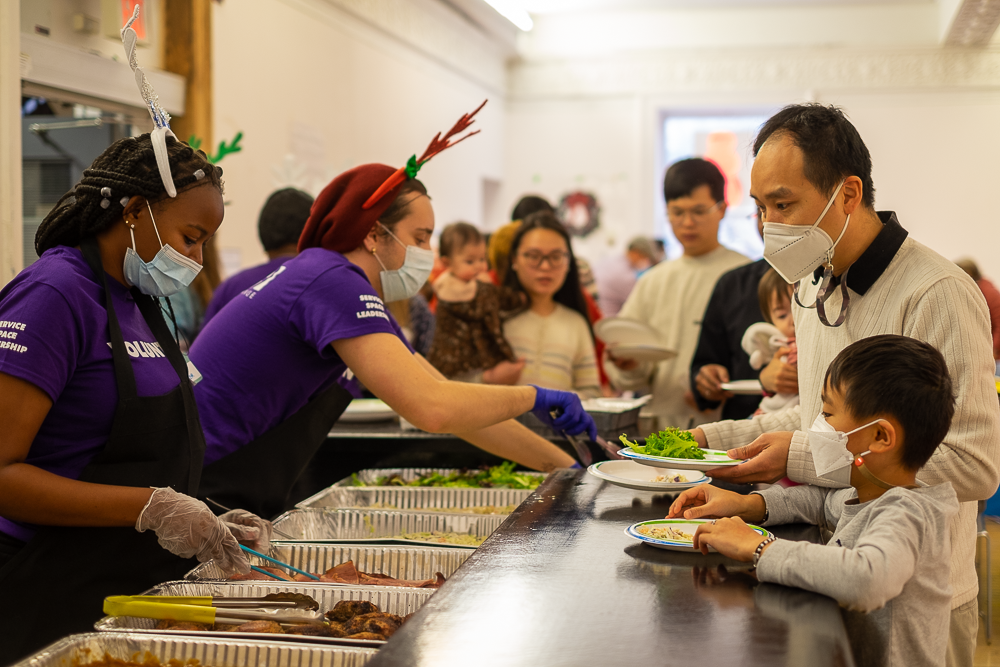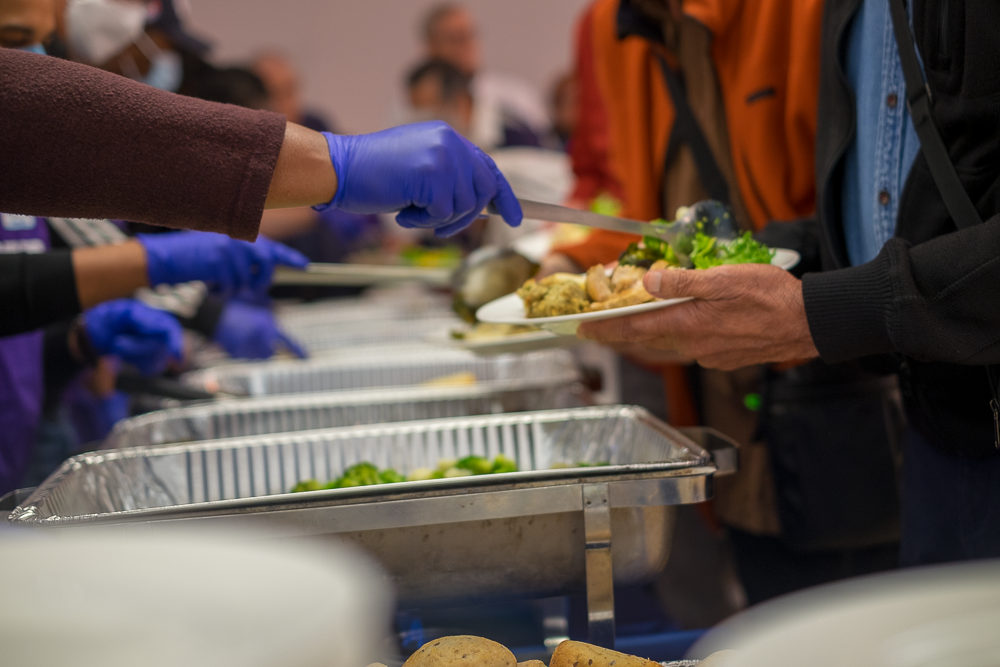Food is a Human Right.
But food continues to be inaccessible to many 2SLGBTQ+ and marginalized folks as a result of rising costs of living and discrimination.
The 519 is taking action so that no one is left behind.
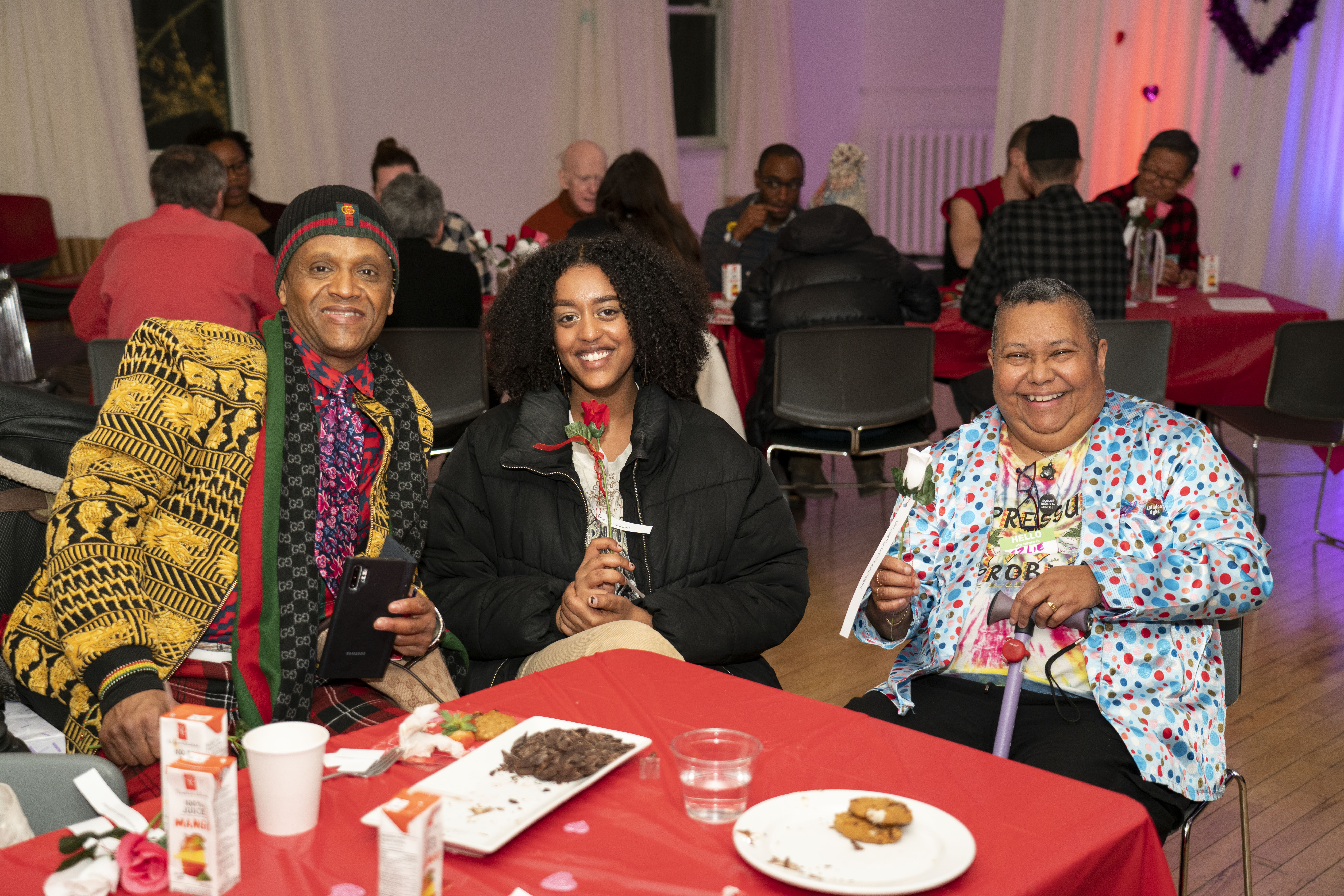
Food is about community and connection, coming together to prepare and share meals.
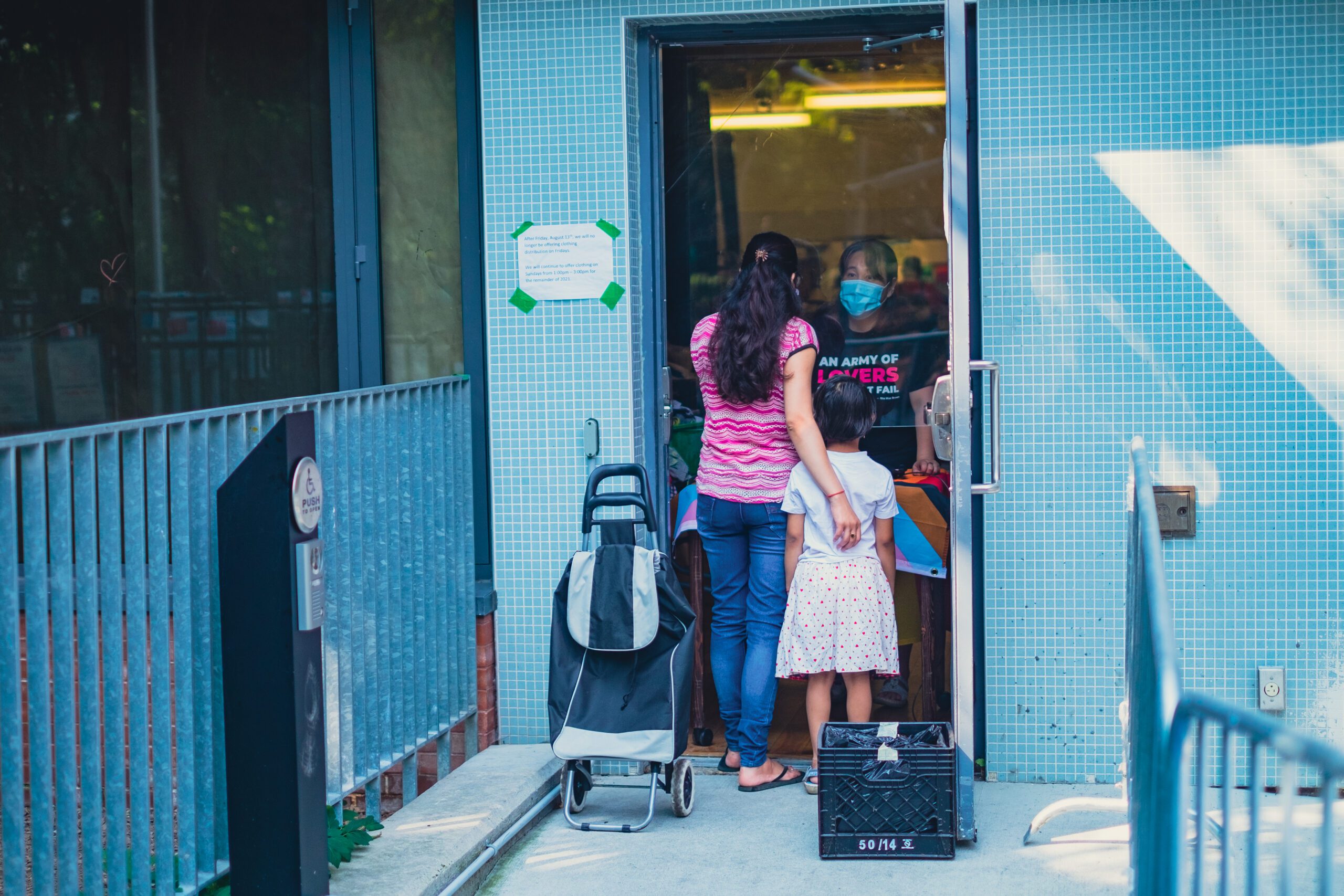
Food insecurity is a harsh reality facing our communities, even before being exacerbated by the pandemic, global inflation, and climate change.
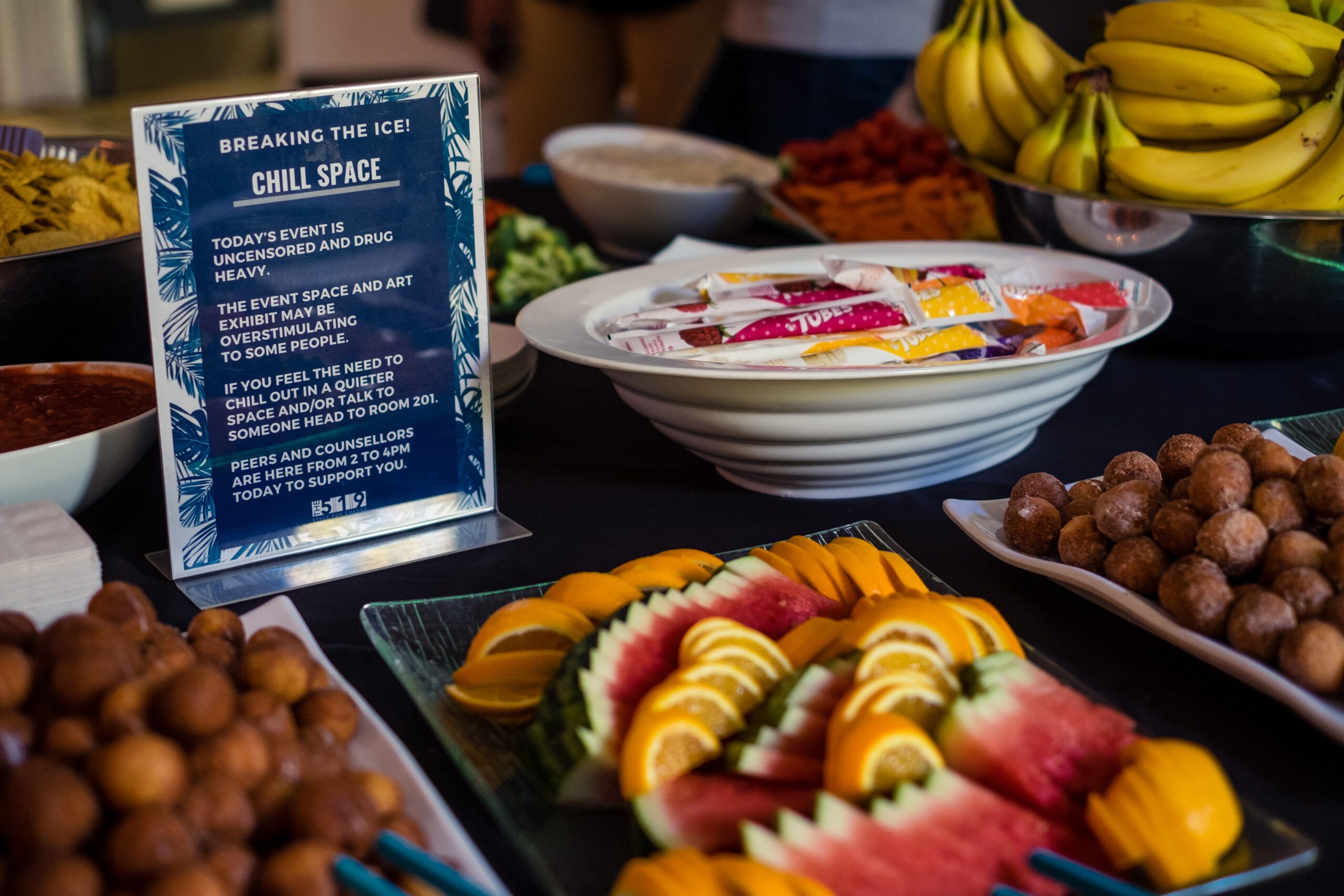
Canada’s Food Price Report predicts a 5 to 7% food price increase in 2023, with the most substantial increases for vegetables, dairy, and meat.
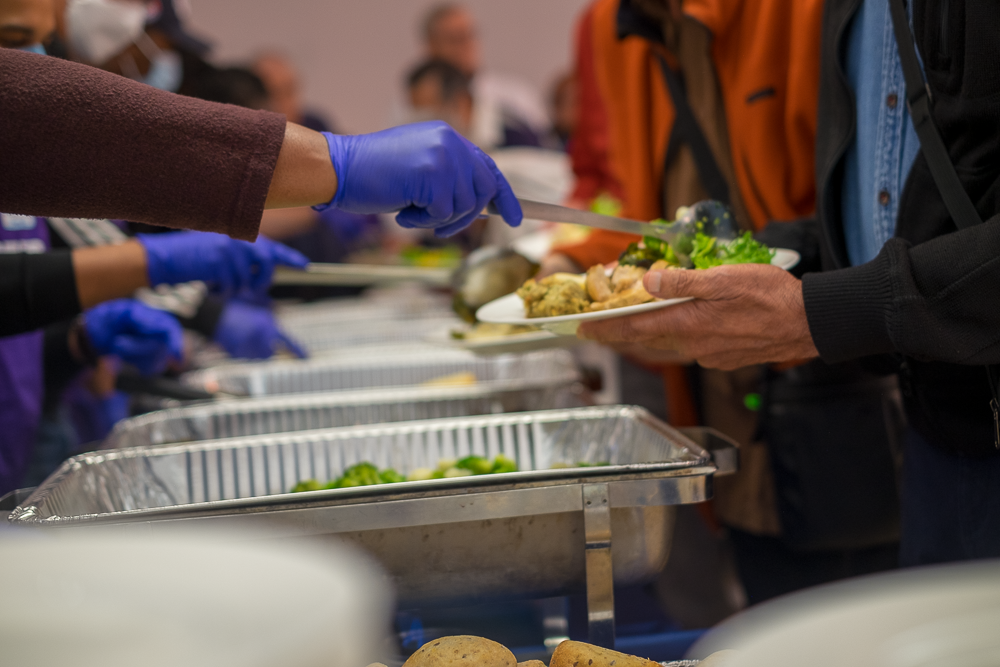
Food insecurity greatly impacts folks experiencing poverty, homelessness, unemployment, seniors, trans folks, newcomers, refugees, and BIPOC communities.
Food isn't the solution to food insecurity. It's about...
Liveable wages.
Connection.
Community.
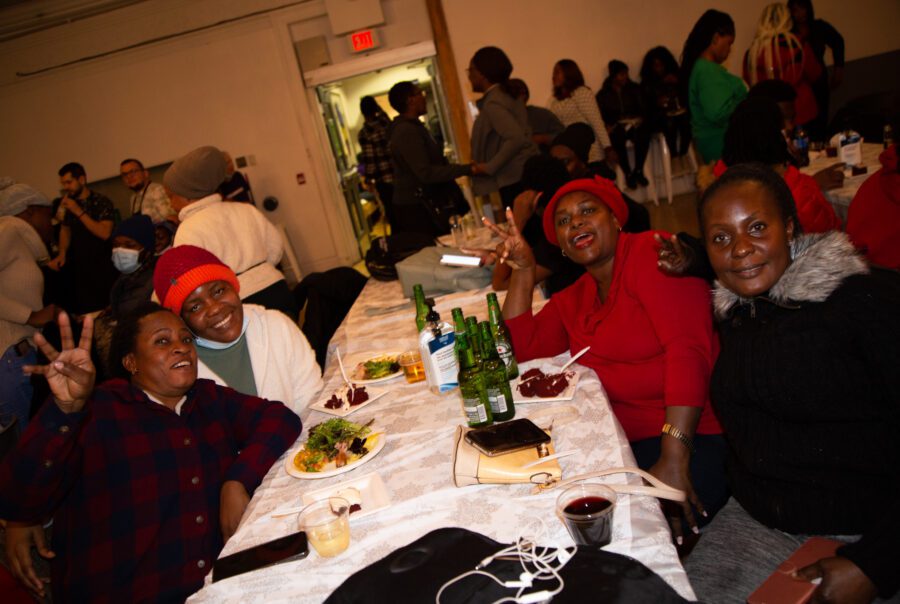
Refugee holiday celebrations, 2022. Photo by Luise Docherty
Why does this matter?
2SLGBTQ+ communities have and continue to be impacted by food insecurity and deeply understand its compounded impacts on one’s health, mental health, relationships, ability to work, and overall well-being.
Anyone can be impacted by food insecurity. Every day, we see more and more marginalized and vulnerable people fall through the cracks as food prices surge.
The 519 – Canada’s most prominent 2SLGBTQ+ multi-service agency – continues to respond to this urgent need. We do this every day through warm takeaway meals, a frozen meals program, satellite kitchen services to 10+ community organizations across the city, food justice advocacy, and food supports through our programming.
We affirm that food is a human right. Food is for everyone.
Our Army of Lovers is working hard to address food insecurity in our neighbourhood, city, and communities. But we cannot do this work alone.
Together, we can respond to this public crisis.
*Based on an average of $15 per takeout meal
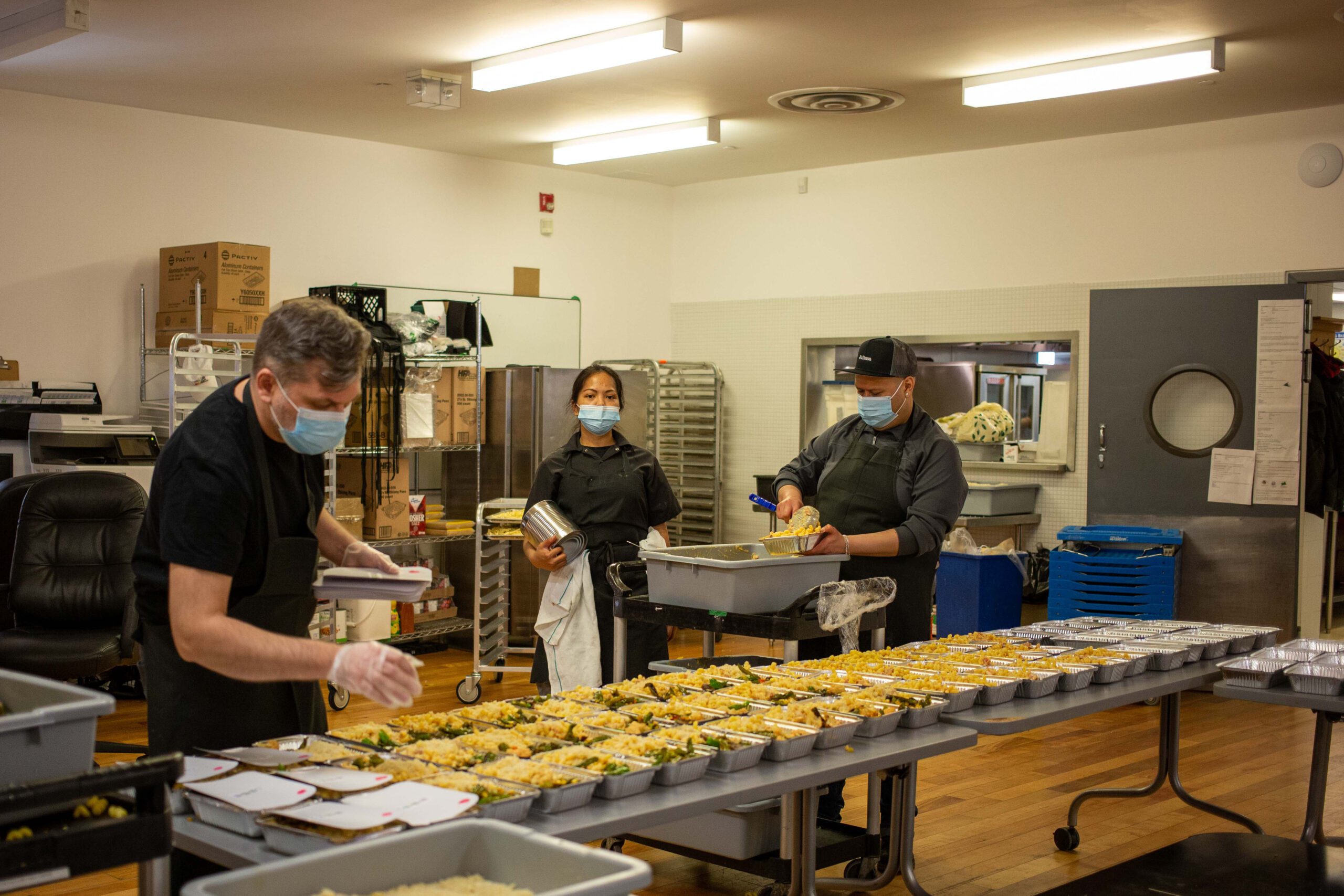
The 519 staff prepping takeaway meals
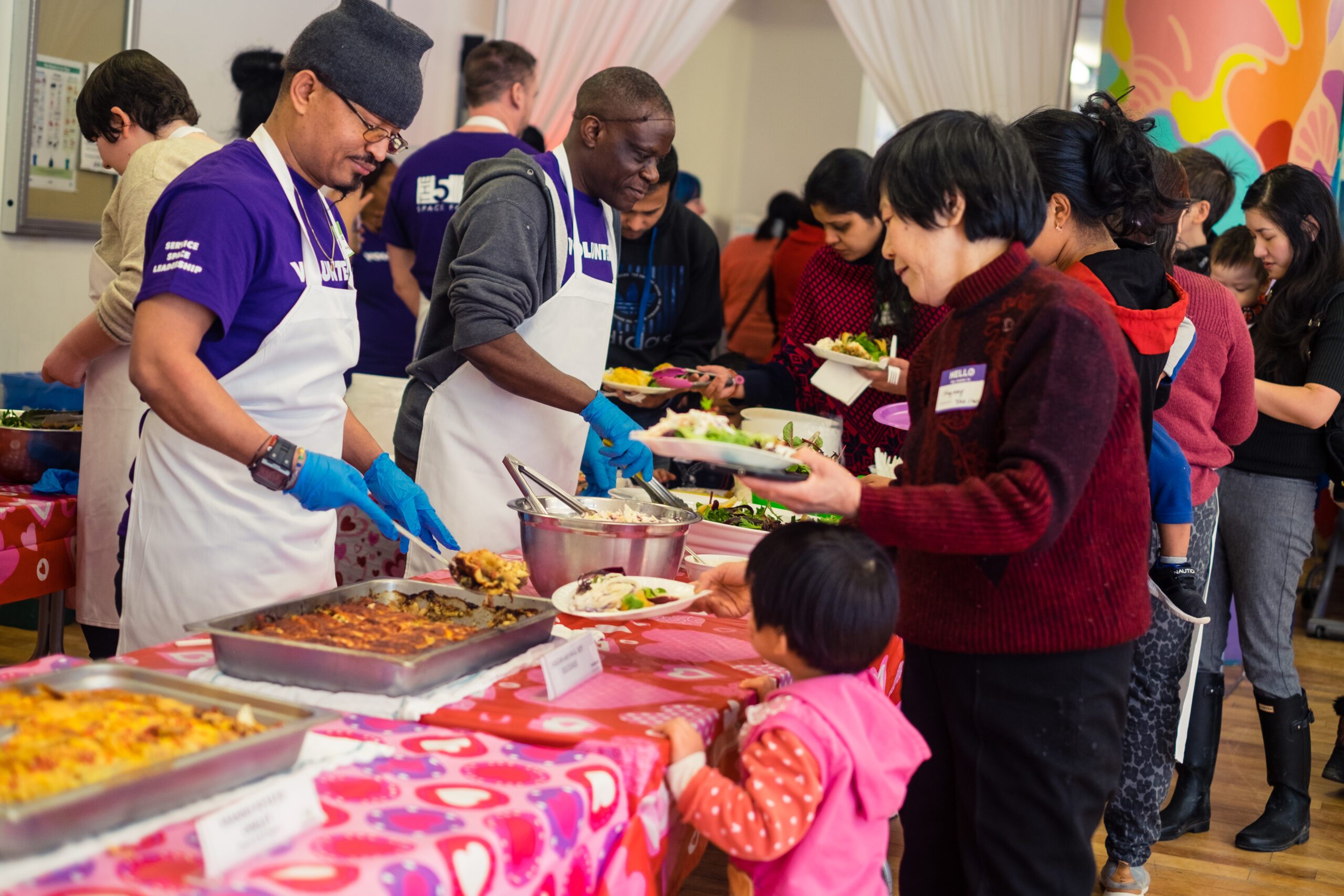
Families partaking in a community meal
The Issue:
Food insecurity is defined as inadequate or insecure access to food due to a variety of constraints, but most importantly financial barriers.
The issue is the direct result of oppressive systems, widening income gaps, inequitable access to food, and institutional failures. If anything, the realities of the past few years (COVID-19, inflation, climate change) have exacerbated an already existing problem.
2SLGBTQ+ communities are at greater risk of experiencing food insecurity:
- 2 Spirit, queer, trans seniors are often food insecure as a result of social isolation.
- Trans and non-binary folks would much rather go without food than experience violence in the form of deadnaming and misgendering at food access centres.
- Many community members are on government income and employment assistance, but these supports are unable to keep up with skyrocketing housing and food costs.
- Many of our communities experience barriers in accessing food that is culturally affirming.
Responding to food insecurity is a collective response. It requires a holistic, intersectional, and trauma-informed understanding of the issue.
Just the Facts:
Pre-pandemic, 4.5 million Canadians struggled to put food on the table. In the first 2 months of the pandemic, that number grew by 39%.
Percentage of food-insecure communities:
"The program served me during a very difficult time.
It helped me get back on my feet."
— A community member accessing The 519 food program
Government Action Addressing the Issue:
Consultations, policies, and responses addressing food insecurity have been introduced at various levels of government over the years. But we have yet to feel the impact on the ground.
Canada’s 2019 budget proposed to invest $134.4 million over five years, on a cash basis, beginning 2019-2020. This was Canada’s first-of-its-kind food policy titled ‘Everyone at the Table’. Also included was a local food infrastructure fund worth $50 million to support community-led projects to improve access to nutritious, diverse, culturally-affirming, and safe food.
These consultations and the resultant budget announcements took place prior to a global pandemic that continues to impact lives as well as the systems at play in our society – including food access. The barriers facing people’s access to food are far too many today. Additionally, these budget allocations are not sufficient to meet the needs of Canada’s growing population. Several rural areas as well as First Peoples’ reserves continue to be severely food insecure, with many of them not getting clean drinking water, to begin with.
Budget allocations mean nothing till we see their direct impact. Our institutions need to do better.
Similar efforts and initiatives have been taken up in the past by the province of Ontario but to no avail. Social assistance like Ontario Disability Support Program (ODSP) and Ontario Works (OW) offered by the province is inadequate in affording people access to housing and food, even more so in Toronto where we are amid a growing housing crisis. Many people must choose between paying rent and buying food.
Anti-Black racism has negatively impacted key social determinants of health for Black communities, including access to food. This has only been amplified in the past 2.5 years. In October 2021, the Toronto Black Food Sovereignty Plan to address food insecurity among Black communities was approved by city council. A partnership between the City of Toronto’s Confronting Anti-Black Racism Unity (CABR) and Afri-Can FoodBasket, it is touted to be North America’s first Black food sovereignty program.
Generally, municipal governments are constrained for tools to holistically address this systemic issue, as it is also linked with other problems including increasing costs of rents, housing, and other services. Naturally, the burden falls on food charities, community-led initiatives, and non-profits like food banks and soup kitchens that rely on individual and corporate donors. Yet, there is only so much that a band-aid solution like this can help.
Inadequate income is the root cause of food insecurity, among other factors. With record levels of inflation, and climate change impacting volumes of food exports, the problem is only expected to worsen.
But it doesn’t have to be this way. Through inter-governmental collaboration and responses, we can hope to create the systemic change necessary to holistically address food insecurity. Food charities are not the solution to food insecurity. Robust policy is; policy that would improve social assistance, living wage, and employment standards for all Canadians.
Just the Facts:
- In 2017, the federal government consulted with various communities and organizations about the Food Policy of Canada – including First Peoples, people who work in the food system, and food justice advocates.
- As of 2022, an average family of four (2 adults, 2 children) had an annual food expense of $14,767, up by $966 from 2021.
- 4 million people in Canada are food insecure as a result of living below the poverty line, representing close to 13% of households.
- 13% of households in Ontario are food insecure. This number has increased during COVID-19 in groups that were already at risk.
- According to the Who’s Hungry report, more than half the respondents have reported missing a meal to pay for something else: rent, childcare, healthcare, etc.
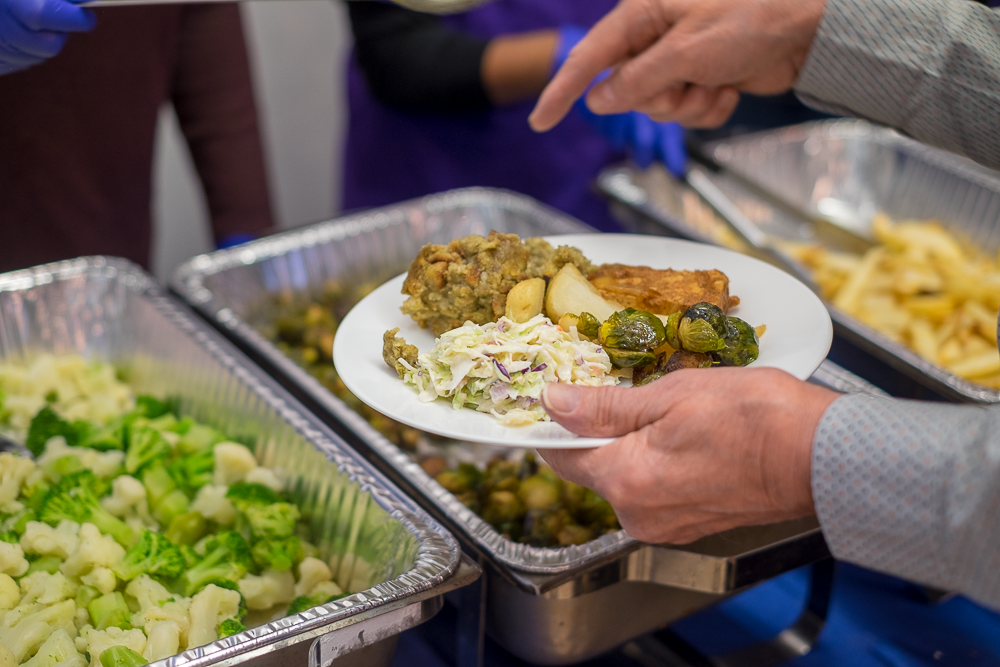
"As a disabled person on ODSP, I can't afford to get takeout and often don't have time, energy, funds, or ingredients to cook a proper meal. Being able to eat a nutritious cooked meal makes me feel valued."
— Participant, The 519 Frozen Meals Program
The 519 has always recognized the importance of food in relation to community and connection.
Our Impact
Even prior to the pandemic, more than half our programs have had a food component in the form of meals, snacks, grocery bags, grocery cards, and more.
The pandemic has resulted in heightened levels of food insecurity, especially among the most marginalized and vulnerable in our communities. We saw these impacts every day, and this prompted us to pivot our services into an essential meal services model.
We began by serving two hot takeaway meals twice a day, seven days a week. It was also an opportunity for us to check in on people at a time when they were most isolated, and provide them with other important resources and referrals.
We stepped up when no one else did, and have been on the front lines ever since, every day.
Over the months, we learned that some folks found it difficult to travel long distances to access our meals at specific times. We hence reimagined the program, now offering frozen takeaway meals at a time that was convenient, thereby improving access to food. We have also doubled up as a satellite kitchen for Second Harvest, partnering with them to send meals to communities being served by other centres across the city. Our impact is not just being felt within our neighbourhood and communities, but across Toronto.
This program is not funded but is an important and integral part of the work we do to support community. We are looking at ways to ensure it can continue as long as there is a need for it.
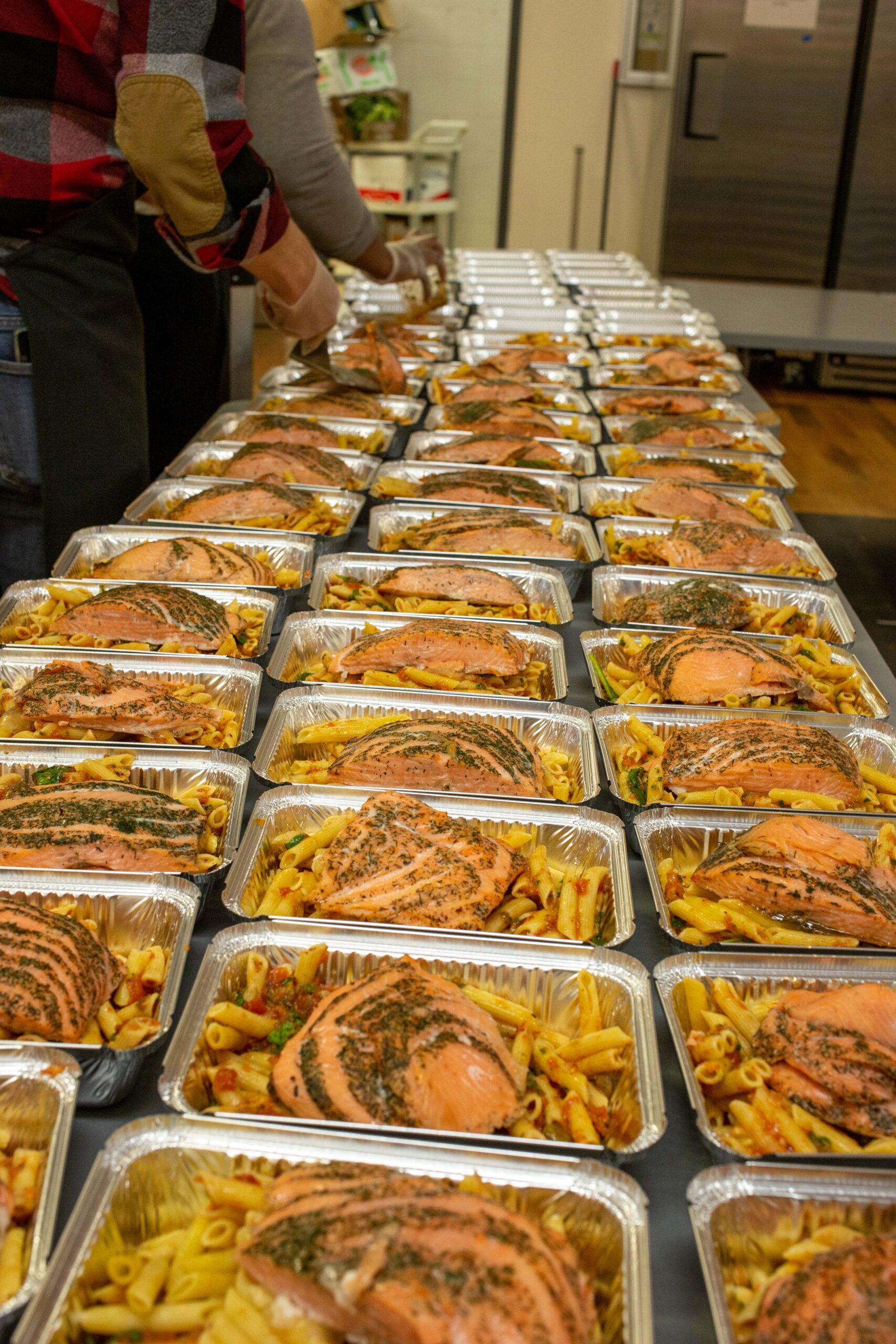
Volunteers prepping for Frozen Meals distribution
